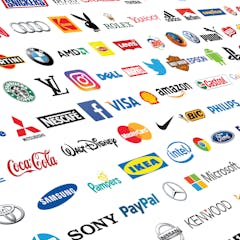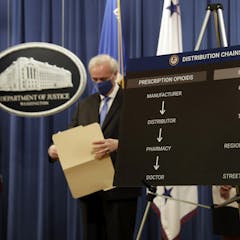
Artículos sobre business ethics
Mostrando 1 - 20 de 49 artículos

The hooks of the consulting industry are deeply embedded in public service departments.

Companies and hiring agencies are increasingly resorting to AI-enabled tools in recruitment. How they’re used can significantly impact an individual’s perception of the organisation.

A new study finds that investors punish companies for behaving badly over three times as much if they have a record of saying they’re virtuous.

Companies that want to avoid the harms of AI, such as bias or privacy violations, lack clear-cut guidelines on how to act responsibly. That makes internal management and decision-making critical.

Ten years after the collapse at Rana Plaza in Bangladesh, the garment industry’s deadliest disaster, reforms are incomplete. The opaqueness of today’s complex supply chain is part of the problem.

Many investors and corporations believe that accounting for the impact that businesses have on the environment, society as a whole and their own workforces benefits their bottom line.

By giving up on corporate responsibility, Patagonia’s founder undermines current strides toward ethical capitalism.

We expect businesses to be more socially and environmentally responsible by minimizing greenhouse gas emissions and eliminating harmful business practices — why don’t we do the same for COVID-19?

Despite being the subject of criticism and negative news, business schools do a lot of good for society, a veteran business professor explains in a new book.

Younger people aged 18 to 28 were more likely to be negatively impacted by manipulative designs on websites and apps.

Research on how the Catholic Church has responded to sexual abuse shows it’s not only time for the church to walk the talk, but to change the talk away from a defensive legalistic approach.

The FBI and Treasury Department frown on the idea of paying off cyber attackers. But there is sufficient ethical and legal gray areas to make it a real moral quandary for business leaders.

B2B brands taking a public moral or ethical stand are increasingly looking at their suppliers and manufacturers to reflect their own values, but where do they draw the line?

The government has tried to harness profit-driven drugmaking to serve public health before. The results were underwhelming.

Women suddenly saddled with increased caregiving duties – whether for children or elderly parents – have been forced to reduce their hours, which hurts their careers and lifetime earnings.

Enacting real change in business is about more than posting online, it is about making real structural and lasting change to how you do business.

Investment advisers who passed a licensing exam with more ethics questions were one-fourth less likely to engage in misconduct than those with less ethics training, according to a new study.

The government has tried to harness a profit-driven drug industry to serve public health before.

A business ethicist explores whether cannabis stocks fit in with a socially responsible approach to investing.

Multi-level marketing schemes promise easy money and a supportive community. But that’s often not how they pan out.
